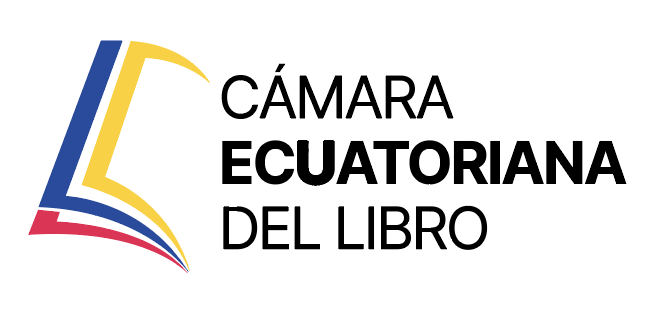
Improve Speaking Skills Through Social Media Assisted Language Learning (Tik Tok)
Guamán Condoy, Erich Gonzalo
Bastidas Logroño, Diego Javier
López Pumalema, José Israel
Editorial:Instituto Superior Tecnológico Quito
Materia:Educación. investigación. temas relacionados con la tecnología
Público objetivo:Profesional / académico
Publicado:2024-05-29
Número de edición:1
Tamaño:3,1Mb
Soporte:Digital
Formato:Pdf (.pdf)
Idioma:Inglés
Libros relacionados
SIED
Inclusión tecnológica y analfabetismo digital en el Ecuador: brechas, competencias y desafíos sociolaborales - Guamán-Chávez, Ramiro Enrique; Núñez-Freire, Luis Alfonso; Mera-Santander, Erick Steeven; Vera-Martínez, Jefferson Moisés; Mendoza-Loor, José Javier; Ibáñez-Jácome, Sixto Santiago; Ramírez-Carrillo, Vinicio Oswaldo; Mora-Olivero, Aldo Patricio; García-Morales, Yulexi Cristina; Celi-Párraga, Ricardo Javier; Boné-Andrade, Miguel Fabricio; Choez-Calderón, Cindy Johanna
Pedagogía Crítica y Educación Transformadora en la Sociedad Digital - Yanchaluiza Coello, Angélica Victoria; Serrano Castro, Anita Karina; Herrera Irazábal, Erika Germania; Quiñonez Saltos, Alba María; Caamaño López, Sandra Elizabeth; Lituma Briones, Linda Carolina; González Reyes, Sara Dolores; Martínez Silva, Rommel Fernando; Calero Alarcón, Rafael Steve; Caamaño López, Libi Carol
Educación con alma digital: arte matemático, liderazgo y convivencia armónica desde la tecnopedagogía de la ia - Chele Delgado, Santiago José; Carvajal Morales, Jessica Mariela; Troya Santillán, Carlos Mauricio
Reseña
In recent years, the landscape of education has undergone a transformative shift with the pervasive integration of technology. This evolution has challenged conventional teaching methodologies, ushering in a new era of dynamic and interactive learning experiences. Notably, TikTok, originally conceived as a social media platform for concise video sharing, has rapidly ascended to prominence as a versatile tool with considerable potential for educational applications. Previous studies have acknowledged the positive impact of social media, including TikTok, on language acquisition (Huang and Tlili, 2020; Chen et al., 2021).
This study bridges this gap by scrutinizing 1st year students' views on TikTok's potential benefits, challenges, and implications for English language learning. The outcomes promise far- reaching implications for language educators, curriculum designers, and policymakers, offering insights to optimize the English language learning experience.
The paradigm shift in second language acquisition from conventional pedagogies to learner-centric, technologically enriched approaches has been a discernible trend. The swift proliferation of social media platforms has prompted educators and researchers to explore their pedagogical potential. TikTok, in particular, has emerged as a formidable force owing to its intuitive interface, accessibility, and inherently engaging nature.
This research centers on investigating 1st year students' perceptions of mobile-assisted language learning, particularly the use of TikTok, inside and outside the classroom. In the face of advancing technology, understanding the impact of TikTok on language learning is crucial. The study addresses the following questions:
1. What are the perceptions of university students regarding the use of TikTok for English language learning?
2. How can TikTok contribute to the improvement of students' speaking quality?
3. Which role-play method, traditional or TikTok-based, is more effective in enhancing language learning and communication skills?
The investigation is justified by the growing integration of technology in language education. TikTok, with its unique features, presents an untapped potential that requires exploration. Understanding student perspectives is paramount for effective language instruction, tailoring it to their needs. Motivating students and enhancing language proficiency are persistent challenges, and this study seeks to uncover strategies leveraging TikTok to address these challenges. The findings aim to guide decisions on the integration of TikTok into the curriculum, ensuring evidence-based enhancements to the language learning experience.
Within the context of university students , there existed an imperative to explore inventive strategies conducive to effective language learning among 1st year students. While acknowledging the indispensable role of traditional classroom instruction, the supplementation of these methods with technology-driven tools, such as TikTok, held promise for augmenting student motivation, bolstering engagement, and elevating language proficiency. The latent potential of TikTok for language learning lay in its distinctive features – short video clips, user-generated content, and interactive challenges. These attributes collectively proffered a diverse range of opportunities for learners to actively participate in and enhance their language skills. The milieu of University students underscored the urgency to embrace innovative strategies, leveraging the unique affordances of platforms like TikTok as well as fulfill the following specific objectives:
1. Investigate 1st year students' perceptions of TikTok's effectiveness for English language learning.
2. Examine students' attitudes towards integrating TikTok into English language learning,
2 Considering benefits and challenges.
3. Explore students' preferences, motivations, and usage patterns regarding TikTok for English language learning.
Despite the burgeoning interest in incorporating TikTok into language learning paradigms, empirical research within the specific context of university students was notably scarce. This study, thus, aimed to bridge this knowledge gap, presenting an in-depth investigation into the perspectives of 1st year students concerning the potential benefits, challenges, and ramifications of integrating TikTok into their English language learning trajectory.
Existing literature has witnessed scholarly examinations of various technologies, including social media platforms, and their impact on language learning outcomes. Noteworthy among these studies are Huang and Tlili's (2020) exploration involving university students, which found positive influences on English language acquisition through social media tools, including TikTok. Similarly, Chen and collaborators (2021) delved into the utilization of TikTok for language learning among high school students, revealing improvements in motivation and linguistic competence.




